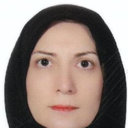Chemotherapy effect on daytime sleepiness and contributing factors in older adults with cancer.
Palavras-chave
Resumo
OBJECTIVE
The objective of this study was to determine the prevalence of excessive daytime sleepiness (EDS) among older Iranian patients with cancer and to analyze the effect of chemotherapy treatment on patients' sleep problems. The relationship between sleep disturbances and physical activity, psychological factors, and demographic data, are also explored.
METHODS
This cross-sectional study consisted of interviews with 83 patients, >60 years old with a solid tumor, carried out in Cancer Institute of Iran once prior to receiving chemotherapy and the second time after the first cycles of chemotherapy. Questionnaires consisted of demographic data, Epworth Sleepiness Scale (ESS), Hospital Anxiety and Depression Scales (HADS), Activities of Daily Living (ADL), Instrumental Activities of Daily Living (IADL), and Eastern Cooperative Oncology Group performance status (ECOG PS). Medical data were also gathered from hospital records. Logistic regression was used to identify predictors of excessive daytime sleepiness after chemotherapy.
RESULTS
The results showed a significant association between EDS and receiving chemotherapy. 8.1% were initially experiencing EDS which increased to 21.6% after chemotherapy (P-value<.001). Anxiety before chemotherapy and number of regions of recurrence of cancer, if any, were identified as independent predictors of daytime sleepiness.
CONCLUSIONS
As EDS prevalence increases after chemotherapy, and this can affect patients' quality of life and treatment outcomes; caregivers should bear in mind that senior patient with cancer, especially those suffering from anxiety and cancer recurrence, need special attention before starting treatment in order to manage EDS over the course of chemotherapy.



